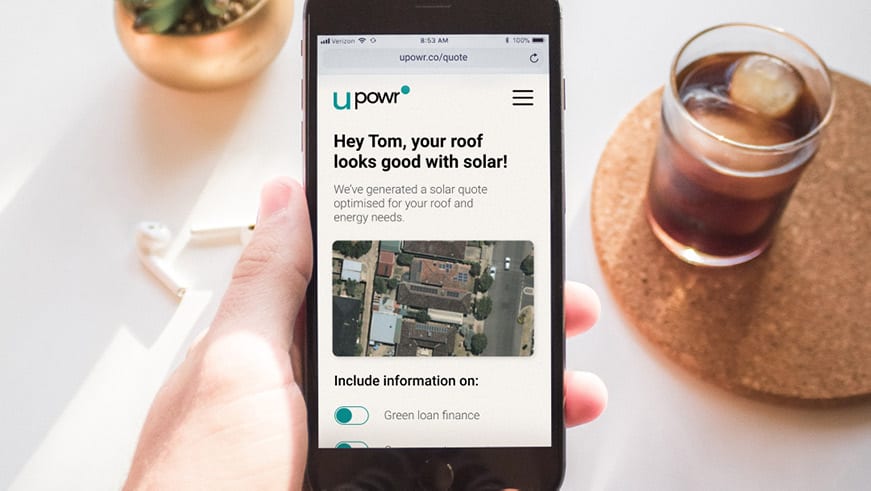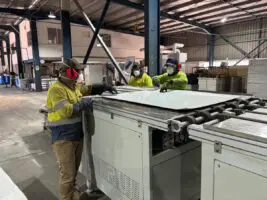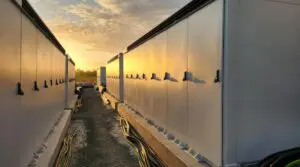Sydney-based start-up UPowr is to undertake a new study into participation rates in rooftop solar and battery orchestration programs in an effort to use household storage to help strengthen the wider electricity system.
With the aid of a $446,000 grant from the Australian Renewable Energy Agency, UPowr will undertake a 13-month study of household solar and battery orchestration participation across Victoria, New South Wales, Queensland and South Australia, informed by behavioural science frameworks.
“Over the past few years the industry has explored the technical, regulatory and market-based needs that orchestration programs are required to deliver. We now really need to focus on identifying the needs of customers and creating value that aligns to it,” UPowr’s chief customer officer Kiya Taylor said.
“This value will be different for different groups – which may not mean we need a bespoke program for every group, but it will mean we need to take a much more nuanced approach of connecting values and communicating programs simply and clearly.”
Orchestration has been pitched as a way of optimising the supplies of electricity from small-scale solar and battery storage installations to maintain grid-wide supply stability. But to-date, it has been difficult to build strong uptake in such programs, as has also been the case in residential demand response initiatives.
Through the $943,155 trial, UPowr will use insights developed through behavioural science research to deliver ‘segmented’ product offerings to different categories of consumers, based on their individual motivations and interests, and hopes that by tailoring offerings to customers, that greater uptake in battery orchestration programs can be achieved.
If successful, the tactics developed using behavioural science techniques could be applied more broadly across energy products and could be used to increase participation in a wider range of distributed energy resources and demand response programs.
UPowr was founded in 2018 and recently launched an integrated end-to-end online sales platform for rooftop solar and storage solutions that the company says can deliver customised quotes and solutions for customers. Through the trial, DER orchestration programs will be offered to customers considering the purchase of rooftop solar and battery storage.
UPowr CEO and co-founder Stu Philpot said that the common response to emerging challenges in the energy system was to restrict the participation of households and small businesses when there is potential for solutions to be developed that benefit both consumers and the energy system.
“Residential solar has created challenges for the industry. But the way it’s currently being addressed – by reducing feed-in-tariffs, export limits and external ‘shut-down’ requirements, is not creating value for the customers who have installed solar,” Philpot said.
“Batteries that are part of an orchestration program, optimised to do the right thing by the customer and the grid, can solve these challenges and still ensure that customers get value – our challenge is to do more in making these programs more aligned to customer values to encourage and incentivise more people to participate.”
ARENA CEO Darren Miller said that while uptake of rooftop solar and battery storage continues to surge, it was key that the needs of consumers were considered when developing system management platforms like virtual power stations.
“Despite our record-breaking solar installations, only 73,000 household batteries have been installed alongside them to store solar energy and dispatch it later,” Miller said. “It is estimated that only 10 per cent of these batteries are controlled by energy providers including retailers, aggregators and networks who can optimise the charging and discharging of batteries, so it’s vital that we continue to find ways to incentivise customers to join these programs.”
“As DER will play an increasingly important role in our electricity grid, we need to put consumers at the centre as it is their behind-the-meter assets including rooftop solar, home batteries, electric vehicles, smart appliances and home energy management systems that will be crucial to scaling up VPPs and demand response.”
“It is important that residential customers are made aware of the benefits from enrolling in these initiatives, and we look forward to seeing UPowr’s results in further understanding the customer journey and experience and how the findings can be used to increase participation rates in future projects,” Miller added.
The study commenced in January and will run until February 2022. Interested households and businesses can lodge an expression of interest in the trial online.







